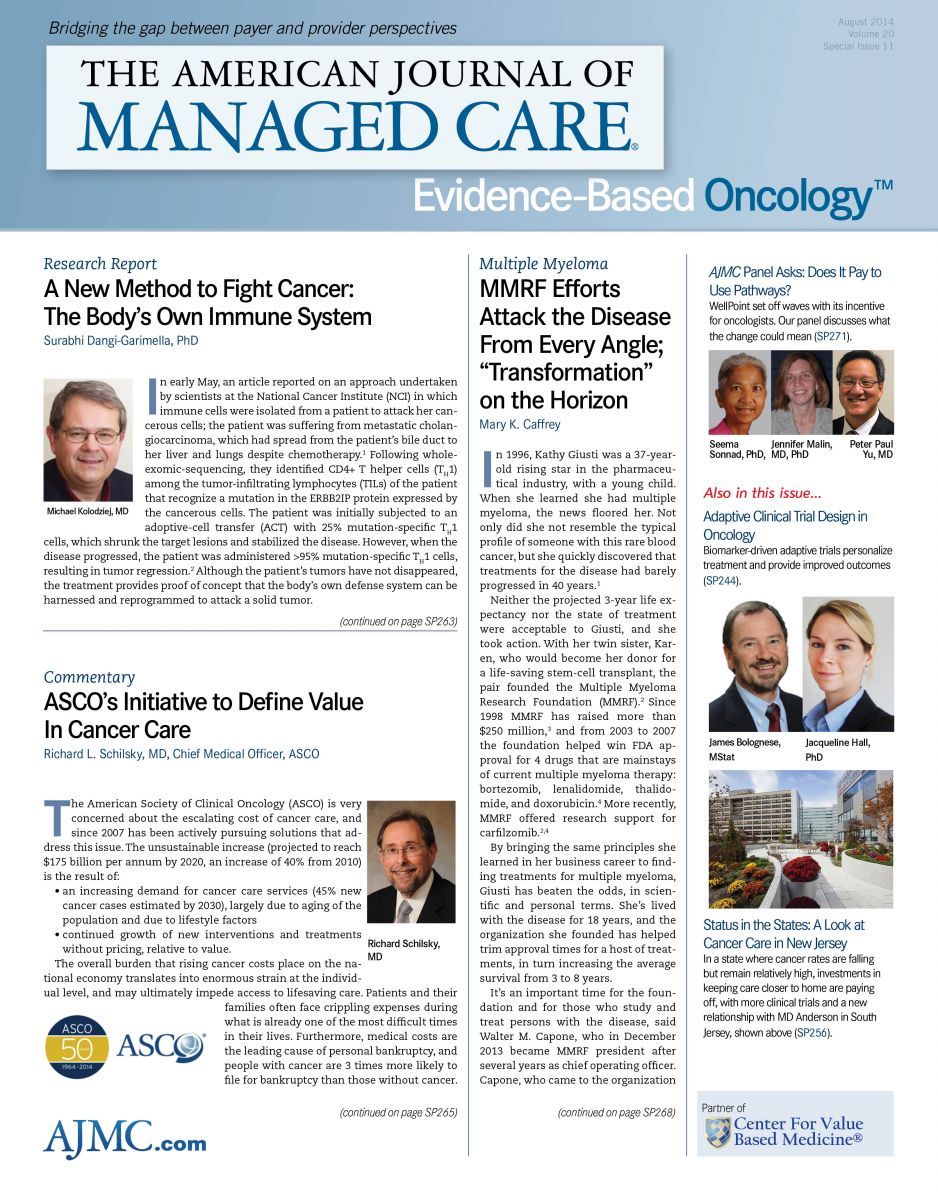- Center on Health Equity & Access
- Clinical
- Health Care Cost
- Health Care Delivery
- Insurance
- Policy
- Technology
- Value-Based Care
ASCO's Initiative to Define Value In Cancer Care
Commentary
The American Society of Clinical Oncology (ASCO) is very concerned about the escalating cost of cancer care, and since 2007 has been actively pursuing solutions that address
this issue. The unsustainable increase (projected to reach $175 billion per annum by 2020, an increase of 40% from 2010) is the result of:
• an increasing demand for cancer care services (45% new cancer cases estimated by 2030), largely due to aging of the population and due to lifestyle factors
• continued growth of new interventions and treatments without pricing, relative to value.
The overall burden that rising cancer costs place on the national economy translates into enormous strain at the individual level, and may ultimately impede access to lifesaving care. Patients and their families often face crippling expenses during what is already one of the most difficult times in their lives. Furthermore, medical costs are the leading cause of personal bankruptcy, and
people with cancer are 3 times more likely to file for bankruptcy than those without cancer.
It’s important to remember that cost is only 1 component of what really is a question about the “value” of cancer care. Value is defined by more than cost—it includes the clinical outcomes patients can expect from any specific treatment regimen, as well as consideration of costs and side effects. The overall value of care reflects the benefits in quality and quantity of life gained against the physical, emotional, and financial costs of medical intervention.
ASCO has launched a strategic new value initiative to:
• obtain optimal outcomes at lowest cost
• develop a framework or methodology to assess the relative value of treatment options based on:
• clinical benefit
• toxicity
• cost
ASCO believes that medical decision making must be the result of informed discussions between patients and their physicians in the context of the local care delivery system—with the patient’s
preferences and goals at the center. ASCO’s Board of Directors is developing the value framework to help physicians and patients determine the most appropriate evidence-based high-quality treatment option, considering the patient’s clinical status, preferences, and personal and family needs. To achieve the broadest consensus, ASCO plans to solicit input from:
• ASCO members and other oncology providers
• the pharmaceutical industry
• the insurance industry
EBO
• patients and patient advocacy groups.

Empowering Children and Parents Through Technology: Opportunities, Challenges, and Future Directions
January 15th 2026Digital health platforms improve pediatric care by offering customized, interactive tools for children and parents. They enhance education, support, and engagement while tackling challenges related to access, usability, and privacy.
Read More
Insights Into Patient Portal Engagement Leveraging Observational Electronic Health Data
January 12th 2026This analysis of more than 250,000 adults at least 50 years old with chronic conditions showed lower portal use among older, non–English-speaking, and Black patients, underscoring digital health equity gaps.
Read More
Subjective and Objective Impacts of Ambulatory AI Scribes
January 8th 2026Although the vast majority of physicians using an artificial intelligence (AI) scribe perceived a reduction in documentation time, those with the most actual time savings had higher relative baseline levels of documentation time.
Read More
Telehealth Intervention by Pharmacists Collaboratively Enhances Hypertension Management and Outcomes
January 7th 2026Patient interaction and enhanced support with clinical pharmacists significantly improved pass rates for a measure of controlling blood pressure compared with usual care.
Read More

